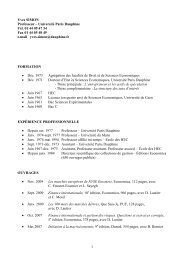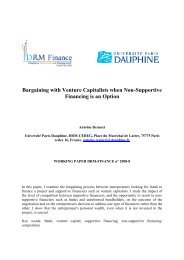Corporate governance and earnings management ... - CEREG
Corporate governance and earnings management ... - CEREG
Corporate governance and earnings management ... - CEREG
Create successful ePaper yourself
Turn your PDF publications into a flip-book with our unique Google optimized e-Paper software.
eing subject to the same accounting requirement, they can afford to offer a higher price”<br />
(1978, p. 68).<br />
1.2. Social nature of accounting<br />
The social nature in the development of accounting has been emphasized by several<br />
authors. Hopwood (1976, p. 1), for example, says “the purposes, processes <strong>and</strong> techniques of<br />
accounting, its human, organizational <strong>and</strong> social roles, <strong>and</strong> the way in which the resulting<br />
information is used have never been static. The economic distinctions drawn by accountants<br />
<strong>and</strong> the methods which they use are themselves creations of the human intellect <strong>and</strong> reflect<br />
social as well as economic evaluations. They have evolved, <strong>and</strong> continue to evolve, in relation<br />
to changes in the economic, social, technological <strong>and</strong> political environments of<br />
organizations”.<br />
Harrison <strong>and</strong> McKinnon (1986, p. 233) remind that “since the early 1970s, policy<br />
formulation has been viewed as a social process; i.e. as the outcome of complex interactions<br />
among parties interested in or affected by accounting st<strong>and</strong>ards”. They refer to Watts <strong>and</strong><br />
Zimmerman (1978), Holthausen & Leftwich (1983) <strong>and</strong> Kelly (1983).<br />
In their work on value added in the United Kingdom, Burchell et al. (1985) review some<br />
existing theories of the social nature of accounting <strong>and</strong> conduct a social analysis.<br />
In the same vein, for Burchell et al. (1980), “accounting change increasingly emanates from<br />
the interplay between a series of institutions which claim a broader social significance”. As<br />
Burchell et al. mentioned (1985, p. 381), “although the relationship between accounting <strong>and</strong><br />
society has been posited frequently, it has been subjected to little systematic analysis”. They<br />
add (1985, p. 382) that “the social has been brought into contact with accounting but the<br />
intermingling of the two has not been explored. As a result, little is known of how the<br />
technical practices of accounting are tethered to the social, of how wider social forces can<br />
impinge upon <strong>and</strong> change accounting”. We believe that there is still some room for<br />
8



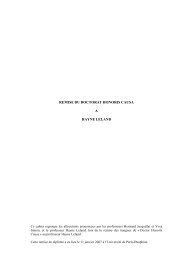
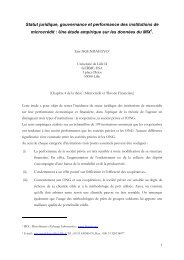
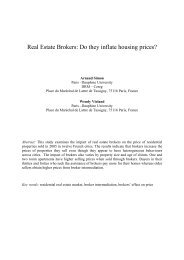
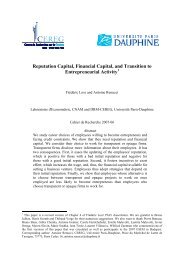
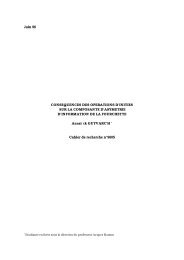
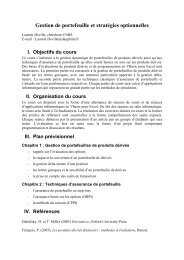
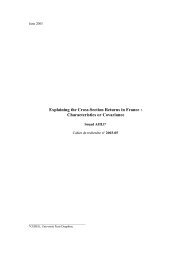
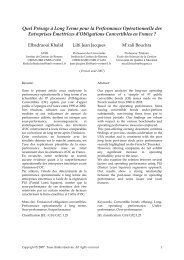

![& 6 ] ^ F ]^ - CEREG - Université Paris-Dauphine](https://img.yumpu.com/33326502/1/184x260/-6-f-cereg-universitac-paris-dauphine.jpg?quality=85)

